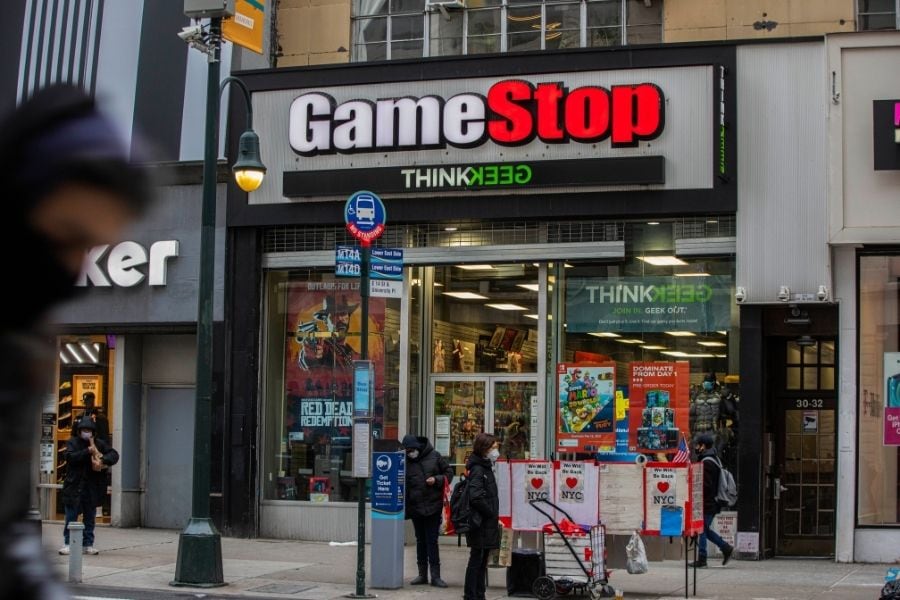
The GameStop reckoning was a long time coming
The entire saga is either a cautionary story about a bunch of reckless nerds destabilising the stock market for laughs or a morality tale about a fearless band of retail investors taking on corrupt financial elites
 A GameStop store in Manhattan on Wednesday, Jan. 27, 2021. GameStop shares have soared 1,500 percent as millions of small investors, egged on by social media, employ a classic Wall Street tactic to put the squeeze — on Wall Street.
A GameStop store in Manhattan on Wednesday, Jan. 27, 2021. GameStop shares have soared 1,500 percent as millions of small investors, egged on by social media, employ a classic Wall Street tactic to put the squeeze — on Wall Street.
Image: Hiroko Masuike/The New York Times
This week, the biggest story in the financial markets is the absurdist, pretty-sure-I-hallucinated-it drama involving GameStop, a struggling video game retailer that became the rope in a high-stakes tug of war between Wall Street suits and a crusading internet mob.
The simplest explanation for what happened is that a bunch of hyper-online mischief-makers in Reddit’s r/WallStreetBets forum — a clan of self-described degenerates with user names like “dumbledoreRothIRA” and “Coldcutcombo69” — decided it would be funny and righteous (and maybe even profitable, though that part was less important) to execute a “short squeeze” by pushing up the price of GameStop’s stock, entrapping the big-money hedge funds that had bet against it.
The strategy worked. Within two days, GameStop was the most heavily traded stock in the world; Elon Musk and Rep. Alexandria Ocasio-Cortez got behind the revolt; and r/WallStreetBets users were posting screenshots of their suddenly inflated account balances. The scheme’s originator, whose Reddit user name is unprintable in a family paper, claims to have turned an initial investment of $50,000 into a windfall of more than $40 million. One of the hedge funds that had shorted GameStop’s stock, Melvin Capital, had to get a $2.75 billion bailout from two other investors after it was hammered with huge losses.
Depending on whom you ask, the GameStop saga is either a cautionary story about a bunch of reckless nerds destabilizing the stock market for laughs in a way that is likely to backfire on them spectacularly, or a David-and-Goliath morality tale about a fearless band of retail investors cleverly putting one over on corrupt financial elites. The truth is somewhere in the middle. There really is a “revenge of the nerds” angle here, but there are also plenty of rich investors cashing in on GameStop alongside the line cooks and high school students.
In any reading, the most unusual thing about Wall Street's being challenged by a rowdy band of Redditors is that it took so long to happen. This kind of populist revolt — internet-based insurgents gleefully pulling down the pants of the unsuspecting establishment — has been happening for years, to many powerful institutions.
©2019 New York Times News Service




